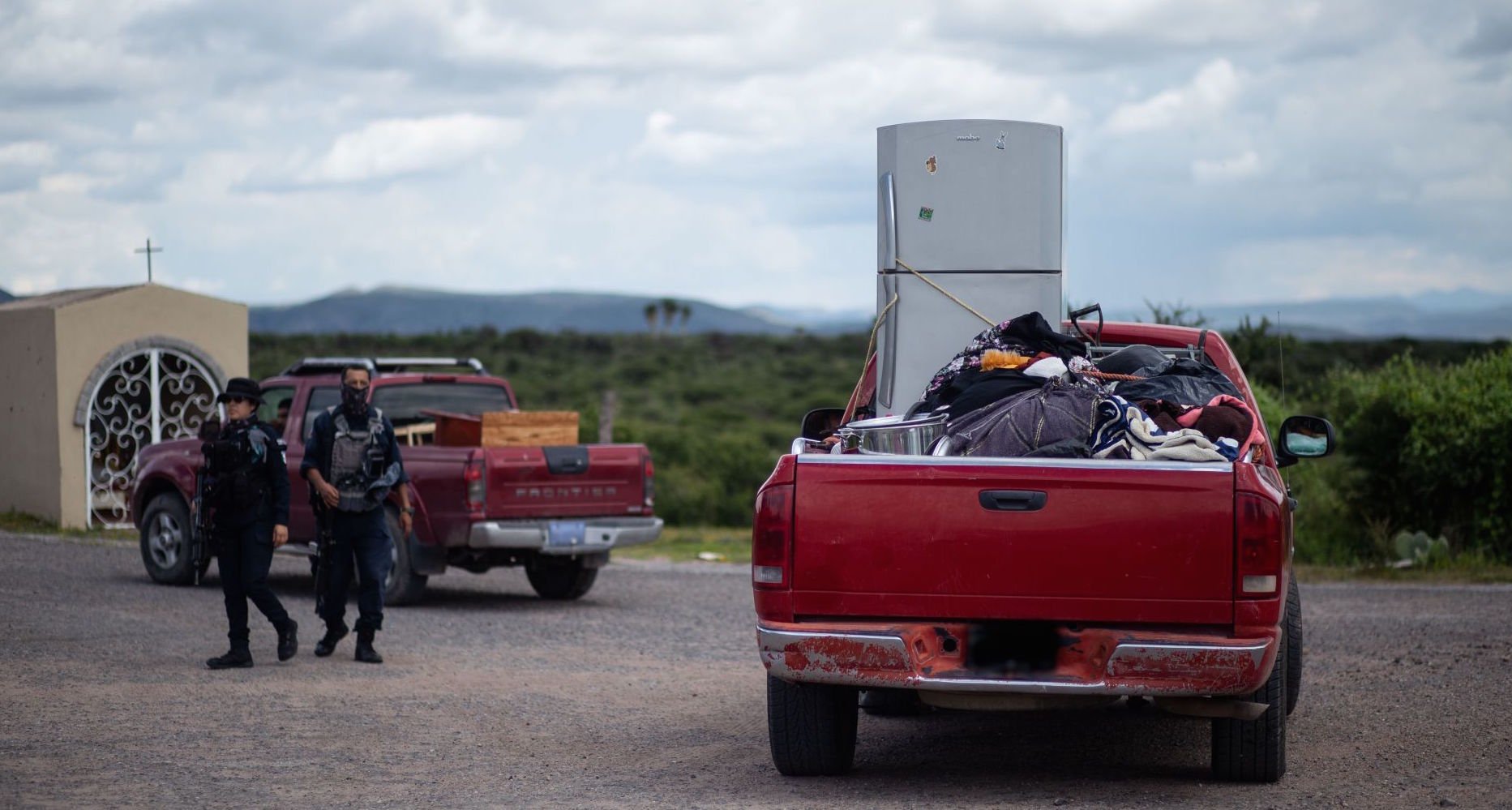
Internal displacement due to violence increased during the last year by 360%, according to data from the latest bulletin of the Mexican Commission for the Defense and Promotion of Human Rights (CMDPDH).
In total, as documented by the NGO, 44,905 people were forced to leave their homes because of organized crime or other violent expressions. This represents a sharp increase compared to 2020, when 9,741 internally displaced persons were registered. In the past months of November and December alone, more than 7,000 people were expelled from their homes in the states of Chiapas, Chihuahua, Guerrero, Michoacán and Zacatecas.
The data are prepared by the CMDPDH through information published in the media but are the only indicator that tries to measure the phenomenon of forced displacement. The arrival to the government of Andrés Manuel López Obrador made the authorities recognize the problem but, to this day, there is not even an official census. The Senate has been paralyzed for more than a year on the Forced Displacement Law that would serve to provide resources to the Mexican Commission for Refugee Aid (Comar) to also take care of Mexican families fleeing their homes. At the moment there is no date for that last legislative impulse.
You may be interested: Murders, disappearances and displacement: consequences of the agrarian conflict in San Esteban Atatlahuca, Oaxaca
The displacement of 800 families in Chinicuila, Michoacán, is the last event included in the bimonthly bulletin, which is published today and to which Animal Político had access. The municipality, punished by the confrontation between the Jalisco Cartel New Generation and United Cartels, came to be left without municipal or police authorities, since they also fled.
In December there was also a massive displacement in Valparaíso, Zacatecas. This was motivated by the kidnapping and murder of three people that forced 150 families, about 700 people, to leave their homes. According to the CMDPDH, many arrived at the municipal capital, where they received the support of the local government and migrants residing in the United States, who supported them with the purchase of blankets and the payment of rents.
Aldama, with hundreds expelled
In October, meanwhile, Chiapas was the state hardest hit by forced displacement. According to the CMDPDH bulletin, some 3,000 people were forced to take refuge in the municipality of Aldama after several armed attacks.
Since 2018, these communities have been forced to leave their homes in the face of intensified attacks. In the same state, a land dispute in Chapultenango led to the flight of indigenous Zoque families, who were attacked “during an armed group’s attack on the community of Esquipulas Guayabal.” At least 47 people had to flee and among them were minors and pregnant women, according to the State Civil Protection System.
Also in Valparaiso, Zacatecas, 31 families were displaced in rural communities in November. “Since mid-2021, the region has been the scene of armed clashes between rival criminal groups, whose members threaten, extort and seek to seize the assets of the local population. In addition to forced displacement, the situation of violence in Valparaíso has led to the closure of schools and health clinics in some rural localities,” the document says.
Finally, the CMDPDH documented two events in Guerrero and Chihuahua. The first took place in the Emiliano Zapata neighborhood of the municipality of Huitzuco de los Figueroa and the second in La Madera, where groups dedicated to drug trafficking expelled about 280 people from their community.
Read more: ‘That chamaca is going to be mine’: Gender violence triggers forced displacement
So far the federal government has not taken a step beyond acknowledging the existence of the problem. The Forced Displacement Act, which was due to be passed in the Senate, remains paralyzed. Andrés Ramírez, general coordinator of comar, explained that they are trying to seek to “include it in the legislative agenda” of this period, but acknowledged that currently it cannot be guaranteed that it will be taken into consideration.
On November 11, representatives of various communities throughout the country suffering from forced displacement and more than 20 civil society organizations announced a national alliance to give visibility to the problem and demand their recognition as victims.
What we do at Animal Político requires professional journalists, teamwork, dialogue with readers and something very important: independence. You can help us keep going. Be part of the team.
Subscribe to Animal Político, receive benefits and supports free journalism.#YoSoyAnimal
"El reclamo puede ser genuino, pero construido sobre una mentira", apuntó el presidente Javier Milei…
El gobernador de la provincia de Buenos Aires, Axel Kicillof, encabezó un acto en Ensenada…
El diputado nacional de La Libertad Avanza, José Luis Espert, expresó su confianza en la…
Tras la masiva reaparición de Cristina Fernández de Kirchner, el presidente Javier Milei apuntó contra…
El principal propósito de la nueva comisión es evaluar los recursos humanos en el Senado,…
En una medida que busca redefinir las condiciones de los seguros de automóviles en Argentina,…
Esta web usa cookies.